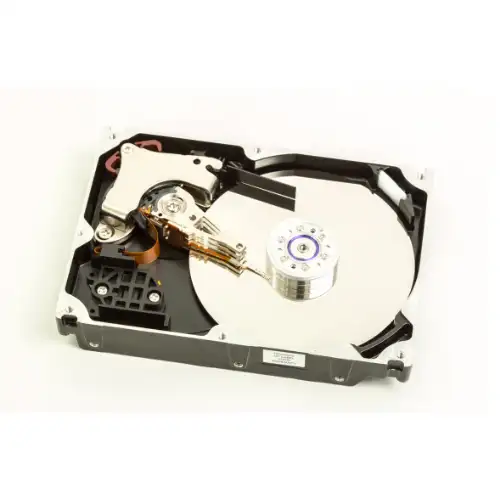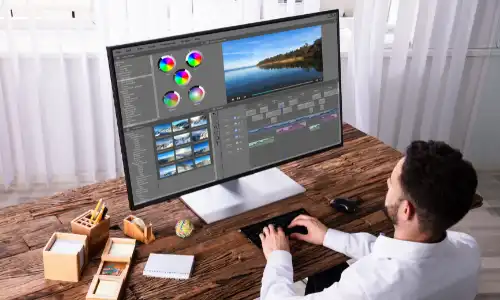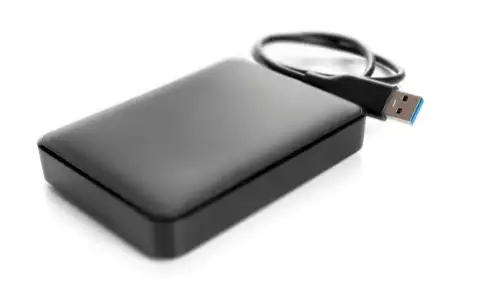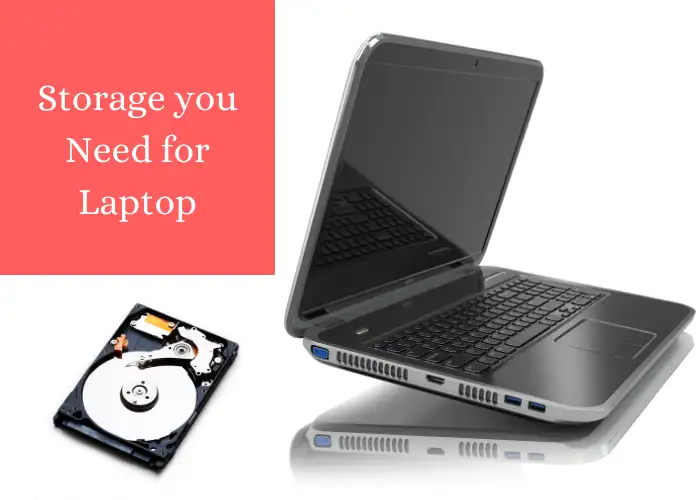It’s easy to get overwhelmed when shopping for a laptop, especially if you’re looking for one with enough storage space. However, there are so many different models and brands of laptops on the market that it can be challenging to find the right fit. And if you planned to buy a new PC but you’re still confused about how much storage I need on my laptop? This blog will assist.
Also, many factors will go into figuring out the answer to this question. So we have created this article to help you figure it out. This post discusses what kind of storage is available and what size you should get for your needs. We also give some recommendations based on the size of your hard drive and other factors.
Still, you need good storage with Laptop in the cloud storage era?
There is a common misconception that as everything moves into the cloud—or becomes part of the “Internet of things”—we need less storage on our devices. This is unfortunately not true for now, and if history has taught us anything, it’s that it will continue to be so.
The amount of data created by each user has been increasing at a steady rate and is expected to grow from 2.7 MB per minute in 2011 to 8,334 MB per minute in 2021.
This means that it’s more important than ever to consider storage when buying a laptop or a computer. If you’re lucky, your machine will have an SD card slot or a separate hard drive for extra storage—but do you need more space?
We will look at the different types of storage and as well how much storage you need on a laptop. We’ll also investigate what’s currently available on the market and give some cost-effective recommendations for buying additional storage. Finally, we’ll briefly touch upon external hard drives and cloud data backup.
Storage types
One of the most important things to consider when buying a laptop or desktop is how much storage it has. Of course, that’s not all you should consider. But there are lots of other things to think about, especially if you’ll be using your laptop for gaming or multimedia purposes.
But this guide will focus on storage and what types of it are, as it’s a key factor in the price of your computer. It’s important to know that there are different kinds of storage on laptops and computers, some of which work together independently. The most common types are:
A Solid-state Drive (SSD)

A solid-state drive is made up of many flash memory chips that have no moving parts. This makes it faster and more dependable than a hard disk drive, which uses mechanical moving parts to read and write the data.
However, an SSD is more expensive and can’t store as much as you’d find on a traditional hard drive.
Also read: Best SSD for MacBook
Hard disk drive (HDD)

A traditional hard drive uses mechanical parts to read the data from one or more discs.HDD is cheaper in price but not very reliable and fast than SSD.
Optical Disk Drive (ODD)

An optical disk drive is a device that can read and write CDs, DVDs, and Blu-rays, etc. These kinds of drives are slowly being phased out as they’re becoming obsolete.
You’ll find each type of storage on laptops and computers, but most won’t come with both an SSD and a hard drive. Instead, you’ll find one or the other—and sometimes just one option.
How much storage do I need on my laptop
Let come back to our main topic on how much storage would you want if you were buying a laptop for yourself and weren’t too concerned about price? You could always go for the biggest hard drive you could afford, but it’s unlikely that you’d ever need more than 1 TB of storage on your laptop.
The amount of storage you’ll need is dependent on what type of files you’re storing. If you frequently use your laptop to watch or edit videos or want to play modern games, then a larger hard drive will be to your benefit, but it’s unlikely that you’ll ever need more than 1 TB.
The reason is that if you have a lot of different large files—such as high-resolution images or videos—a smaller hard drive could fill up very quickly.
At some point, before your laptop becomes unusable, you’ll have to choose whether you want to delete some files or get an external hard drive for backup.
How Much is Storage Space good for Personnel Use?

The amount of storage needed for a personal user depends on the type of data and what you want to do with it. For example, images take more storage memory than a document file.
A one-page word document may only be a few kilobytes (kb), while a one-page image file can easily be several hundred kb.
In addition, some types of files – such as video files, take much more storage than pictures. An HD movie might require 2 GB (gigabytes) or more storage space, while digital audio files may only be a few megabytes (.5 to 1 MB).
Again, it depends on your needs, but the average person requires 2-3 TB of storage space per year, and that will certainly vary depending on what you store.
If you keep up with the latest movies and TV shows via streaming services like Netflix or HBO. Then, storage collections will be relatively insignificant. If not, your hard drive space might grow fast enough to need replacement several times during a single year.
However, 4 TB is usually more than enough for many lower-end users who want to transfer photos over from their phone now and then, while 10 TB would probably be best for someone who watches all major TV series and want to store a large volume of data.
How much space do I need for gaming?

Generally, Gaming takes up less hard drive space than storing big-size videos. But it depends on the game type and installed applications in addition to the size of the game.
You will need about 10 GB for a new game (such as Assassin’s Creed) with little additional data beyond that necessary for loading times, but you could easily take up 100 GB if you do not weed out uninstalled games or apps.
So, in general, 500GB is enough for Gaming in most cases, but if your budget allows 1TB or 2TB would be an excellent choice. Read more here: What storage space is perfect for gaming?
How much storage do I need for video editing and graphics designing

Video editing and graphics design require a lot of data to be processed. Therefore, it is necessary to have big storage space in the computer. However, the hard disk space required depends on the type of software used, length of the project, etc.:
In general, higher-end packages such as Adobe Premiere Pro or Final Cut Pro will require more storage space than entry-level programs such as Windows Movie Maker.
A film is usually 1 GB to 12 GB or more, depending on the length and resolution for which it was shot. However, storage space is not only concerned to perform editing tasks. Video editing and graphics designing may require both hard drive space and RAM space for carrying out smooth operations.
In general, the more powerful the computer, the better the experience of video editing and graphics designing would be. However, it can never be stated that a faster machine will do the job more effectively and quickly. It is also pertinent to note that faster machines increase hardware costs, whereas video editing and graphics designing can be carried out on standard computers.
But let suppose one has a limited budget but requires powerful machines for their workstation. In that case, it is advisable to go for a few upgrades such as adding extra RAM and central processing unit (CPU) than purchasing an expensive computer with limited space for future upgrades.
It is important to note that the speed at which the data is transferred from one place to another depends on factors other than storage space. One must buy a computer with higher RAM to work with high-resolution images, edit large files and carry out graphics designing tasks.
Even though it is highly unlikely to store a complete feature-length movie in hundred-gigabyte storage space, it is still necessary to have extra space to save time and rework on projects.
An external hard drive is a good alternative

Suppose you have a laptop with more limited storage, whether due to size or cost, then it might be time to buy an external hard drive. There are many different brands and models available, but the important things to consider when you’re buying are speed, size, and interface.
It’s common for external hard drives to use the USB 3.0 connection standard on laptops. But if your computer has a USB 2.0 port, then it might be worth looking at a drive with Firewire or Thunderbolt connectivity instead. These connections aren’t as fast as USB 3.0, but they’re faster than USB 2.0 and better suited to large files.
More importantly, it would be best if you thought about how big your external hard drive will be. Usually, the larger the drive, the more you have to pay, but if you need lots of storage space, this shouldn’t put you off. Just make sure that you don’t buy a model that’s too large for your needs.
Cloud data backup is another great solution

If you don’t want to store all of your files on an external hard drive, even if you have one big enough, then cloud storage may be a better option for you. This kind of service lets you upload and access files from any device with a web browser, so you can use your laptop, tablet, or smartphone to manage your backup from anywhere.
Cloud storage also has the advantage of being accessible from any device with a browser, instead of just those at home or in the office. This makes it a good option if you’re a freelancer who spends a lot of time working outside your traditional workplace.
And there are many best cloud storage services like Google Drive, OneDrive, PCloud, Mega, Dropbox, and many more that require a monthly payment from you to use. If you can afford it, it’s worth paying for these cloud services that offer more storage than a local hard drive at an affordable price and provide apps for all kinds of devices.
Some cloud backup services come with a free amount of storage space—and no limit on the files you can upload—so it’s worth looking around to see what suits your needs before paying for any service.
Final Words
Do you want to buy a laptop with lots of storage space, or would you prefer an external hard drive? How much data do you need to store? Is cloud storage something you could benefit from? Think twice about what is good for you.
FAQs
Is 256GB enough for Windows 10?
This is a difficult question because there are many variables to consider. It’s worth taking the time to research what you use Windows 10 for. So that you can better gauge whether or not 256GB may be enough space, here are some things to keep in mind when purchasing a laptop with 256GB storage, like what programs you will configure along with Windows 10.
In most cases, a hard drive with 250 GB of storage space can very quickly fill up with pictures, videos, and music files that you load into them too. However, 256GB is enough for you not to store too much data or not run intensive applications.
Is 256GB enough for a student?
Yes, 256GB will be more than enough storage for a student. The average college student expects to use about 5 GB of data per month.
Which lasts longer, SSD or HDD?
HDD drive doesn’t last long for two reasons. Firstly, it repeatedly uses the same part of the disk’s magnetic surface to write data, damaging all disks. Secondly, suppose a write error occurs during the writing process before the system has stabilized.
In that case, it can take hours or even days before running data-redundancy repair processes like RAID rebuild. As such, HDDs should only be used for short-term storage (log files and other temporary storage). In contrast, SSD uses a flash chip that makes it more reliable, responsive, fast, and longer.
Which internal SSD is best for laptops?
There are many best internal SSDs for a laptop, for example, SAMSUNG 980 PRO, PNY CS2130, Crucial BX500 3D, Sabrent Rocket Nvme, and many more.
Can a laptop have both SSD and HDD?
Yes. A laptop might have both SSD and HDD drives to offer the best of both worlds regarding storage space. If you want a computer you can keep for many years, the hybrid drive configuration makes sense because, over time, large, high-capacity hard disks wear out much more quickly than smaller devices like CPUs.
Though an SSD is more vulnerable to damage from motion or vibration these days due to the lack of air cushioning that traditional HDs provide, they are vastly speedier at reading information which can make up for any slowdowns caused by wearing parts over time. But if mobility is what matters most, your needs will determine whether an SSD or HDD makes more sense based on how often you take your laptop.
